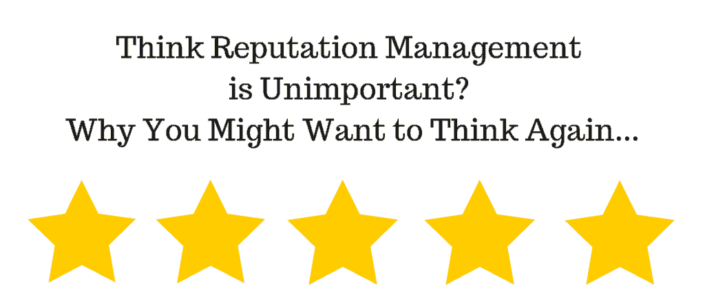For many executives, reputation management is simply part of traditional PR.
And they are wrong.
Reputation Is An Invaluable Asset
Corporate reputation is arguably the single most important non-corporeal asset a business possesses. The old days of word-of-mouth reputation are long gone – or, truer to say, have entered the digital landscape.
Reputation Counts For More In Today’s Business Reality
Formerly, reputation assessment was the stuff of focus groups and surveys and tended to be directed toward products and services. And those tools are still important, for instance, in the food and beverage industries. But for most companies, the lag time associated with focus groups and surveys makes them cumbersome data generating tools.
We live in a world radically transformed by communications media. This revolution has dilated time and condensed it simultaneously. We live in an era where a minute is longer and communication is expected to be instantaneous.
A New Kind Of Consumer
Reputation happens – it is a reality all business activity generates. That it is more important than ever before has to do with changing consumer behavior. A recent study of preferences in young professionals – an increasingly important influence in B2B sales – reveals that over 50% conduct product research before making or recommending a purchase. Further:
- 61% of global Internet users research products online.[1]
- 44% of online shoppers begin by using a search engine.[2]
- 91% of global consumers are likely to switch brands to one associated with a good cause, given comparable price and quality.[3]
- 50% of global consumers said they would be willing to reward companies that give back to society by paying more for their goods and services.[4]
It’s clear that the modern consumer actively researches products and services before the purchasing act, and that the reputation of a business is a very significant aspect of purchasing decisions.
With instant communication and highly activist consumers sharing information directly relevant to brand value, focus groups and surveys are too removed from where reputation value is happening: in real time in digital for a.
Marketing’s Augmented Role In Reputation Management
The age of the self-contained PR department is a casualty of changing communication. Marketers have a significant impact on reputation management. Social media marketing offers feedback about consumer trends – their compliments, their complaints, how they’re researching, what they’re looking for. The reach of digital media means that snowballing can happen in minutes, and catastrophes in hours. Marketers are often the first to spot the high and lows that require a response.
The traditional means of securing quality reputation is still customer service. But the fundamental nature of that service is changing. Corporate reputation management has two main areas:
- The build-up of positive responses in consumers
- The response to negativity and criticism.
Preparing The Positive
No longer is this achieved just by having courteous sales professionals available to advise and facilitate a smooth transaction. The name of the game is optimization: making sure that the customer has an easy way to research your company and your products.
Content and Content Strategy
It sounds easy, but it’s not. The key is quality, engaging content. Social media is the means to quantifying engagement – knowing what consumers like and dislike guides the fashioning of content that will appeal to them. And engagement is vital: a disconnect with consumers is death to sales.
The Socially Conscientious Consumer
It bears repeating: “91% of global consumers are likely to switch brands to one associated with a good cause, given comparable price and quality.” 50% are willing to pay for a product that aligns with their values.
Social media comes to the rescue yet again. The data obtained from social media channels is the means to target causes your consumers to feel passionate about. Make no mistake: consumers want to trust business, and their loyalty translates to sales. There needs to be an emotive component in the modern consumer/business relationship.
Negating The Negative
No matter how carefully you tread, there are going to be negative reviews and criticism. But with a little planning, you can make lemonade from even the sourest lemon.
- Offer your consumers avenues to express concerns. Have a pressure valve that lets your valued customers vent. Providing support forums and contact forms that are easy to find and use – and incorporate a policy that every unhappy customer must be contacted with 24 hours to ensure that the problem is resolved.
- Don’t ignore negatives. Respond to them. Offer sincere and humble assistance to resolve customer complaints. If the negative review is an irrational bully-type, a potential customer can easily see that your efforts were valid, but wasted on such an individual.
- Make sure to encourage happy customers to leave feedback. A hundred satisfied customers outrank a few dissatisfied.
As digital business evolves before our eyes, you need a clear, creative vision to navigate the shoals and rocks of the online marketplace. We have the team to help your business nurture and maintain a positive reputation in the digital landscape. Our proven, experienced marketing professionals can offer you advice across the digital spectrum: from PR and social media to e-mail marketing and SEO. Contact us today.
[1] Source: http://www.hubspot.com/marketing-statistics.
[2] Ibid.
[3] Source: 2013 Cone Communications/ Echo Global CSR Study
[4] Source: Nielsen 2013 Consumers Who Care Study







